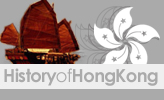Major democratic reform began in 1984. Following the historic meeting in 1979 between Deng Xiaoping and then governor Murray MacLehose, a Green Paper: the Further Development of Representative Government in Hong Kong was issued by the colonial government in July 1984. It included proposals aimed at developing a system of more localised government, which included the introduction of indirect elections to the LegCo (Legislative Council) the following year. [5] The Sino-British Joint Declaration stated that "the legislature of the [Hong Kong Special Administrative Region] shall be constituted by elections"; then British Foreign Secretary Geoffrey Howe further promised the democratic process would start "in the years immediately ahead", but they stalled due to opposition from Beijing, local business interests as represented by Executive Council, and the British Foreign Office under the pretext that it would bring chaos to Hong Kong. [6] Declaring that "full weight be given to representation of the economic and professional sectors essential to future confidence and prosperity of Hong Kong", the government proposed 12 seats of the Legislative Council were to be elected the following year. Martin Lee and Szeto Wah, later to become leading democrats, were among those elected in 1985. [7]
Democracy activists – pressure groups, religious groups and community organisations – attended a mass rally at Ko Shan Theatre in Hung Hom in November 1986. The rally was a milestone in Hong Kong's fledgling pro-democracy movement. One of the participating groups, calling themselves the 'group of 190', demanded direct elections for LegCo in 1988, and a faster pace of democratic development after the Handover. [5]
In 1987, many surveys indicated that there was more than 60% popular support for direct elections. The government, under governor David Wilson, issued another green paper in 1987 proposing direct LegCo elections for 1988. However, the proposal was ruled out after a government consultation concluded that people were 'sharply divided' over its introduction that year. [8]
Tiananmen Square protests
In 1989, following the death of Hu Yaobang and the spread of nationwide protests in China, Hong Kong witnessed an unprecedented wave of political movements. [9] Students, professionals, journalists, religious groups, unions, and artists organized marches, petitions, hunger strikes, and fundraising campaigns to support Beijing and mainland protesters. [10]
In May 1989, public participation reached historic levels. On May 21, "one million Hong Kong citizens participated in a parade which lasted for eight hours in support for the mainland students", and the Hong Kong Alliance in Support of Patriotic Democratic Movements of China was formed. [11] On May 27, the Concert for Democracy in China raised HK$12 million. The next day, another massive demonstration was held with 1.5 million participants. [12] [13]
The massacre in Tiananmen Square on 4 June 1989 shocked the public. More than one million residents demonstrated to express their sorrow, [14] with citywide strikes and memorial vigils. [15] [16] Public confidence in China's promise of "one country, two systems" collapsed sharply. [17] [18] These events permanently reshaped Hong Kong's political landscapes, fueling distrust towards Chinese central government and localism.






